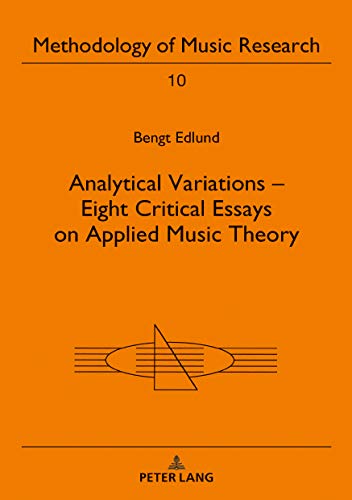

Most ebook files are in PDF format, so you can easily read them using various software such as Foxit Reader or directly on the Google Chrome browser.
Some ebook files are released by publishers in other formats such as .awz, .mobi, .epub, .fb2, etc. You may need to install specific software to read these formats on mobile/PC, such as Calibre.
Please read the tutorial at this link: https://ebookbell.com/faq
We offer FREE conversion to the popular formats you request; however, this may take some time. Therefore, right after payment, please email us, and we will try to provide the service as quickly as possible.
For some exceptional file formats or broken links (if any), please refrain from opening any disputes. Instead, email us first, and we will try to assist within a maximum of 6 hours.
EbookBell Team

0.0
0 reviewsThis book gives a critical account of various methods used in music analysis. In the first chapter, a number of current approaches such as semiotics, musical implications, Schenkerian analysis, and generative theory are demonstrated on Mozart’s K. 331 theme. Five essays deal with important concepts in music analysis: ambiguity, formal proportions, and similarity within and between works. A further chapter provides a discussion of probability, kinship, and influence – decisive criteria when judging musical plagiarism. The last essay, studying a piece by Schubert, sifts the prospects of deciphering a composer’s sexual leanings from his music.